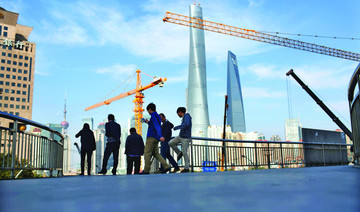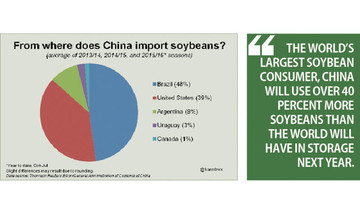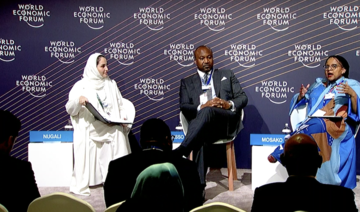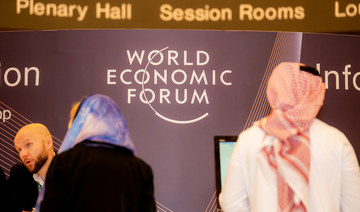SHANGHAI: Visitors to a vast trade fair meant to rebrand China as a welcoming import market could sip Moroccan wine, ogle Italian yachts and watch a Japanese industrial robot play ping-pong.
The communist government’s marketing extravaganza involving 3,600 companies from 152 countries showcases the promise and challenges of China’s growing, state-dominated and intensely competitive markets.
At a stand for German robot maker Jungheinrich, spectators watched a bright yellow automated forklift shift bulky cartons. A manager, Christian Wurzinger, said China accounts for one-third of its global sales but the Hamburg company wants to expand beyond factories and logistics into health and other industries.
The expo gives “very good access to Chinese companies, especially outside big cities,” said Wurzinger. “We are lucky to be here.”
Still, he said Jungheinrich already faces Chinese competition: “There are plenty of local Chinese manufacturers with pretty good technology, to be honest.”
The China International Import Expo is part of efforts to develop China-centered world trading networks while resisting pressure to roll back industry plans that Washington, Europe, Japan and other governments say violate its market-opening obligations.
China already is the No. 1 market for most of its Asian neighbors. But a big share of those imports is iron ore, computer chips and other materials that are turned into smartphones, toys and other goods for export.
That is changing as communist leaders promote consumer spending as part of efforts to develop self-sustaining economic growth and reduce reliance on trade and investment. That holds out the promise of a market of 1.4 billion consumers, even if incomes are a fraction of those in developed countries.
On the expo’s opening day, President Xi Jinping promised Monday to boost imports, cut costs for importers, protect patents and improve consumer spending power. But he did not address US and European complaints about technology policy that prompted President Donald Trump to impose penalty tariffs of up to 25 percent on $250 billion of Chinese goods.
Importers into China must contend with a thicket of restrictions and, in autos and other industries, pressure to help develop potential Chinese competitors as the price of market access.
Tarvand Saffron, an Iranian exporter of saffron, was invited to the expo by a Chinese state-owned company. But export manager Amir Reza Jalalian said food regulations bar sales of its product in China.
“Maybe in the future we can import saffron,” Jalalian said, as visitors crowded around the company’s stand to smell the crimson spice.
Business groups complain that while Beijing increases imports to serve its factories and consumers, foreign companies are being squeezed out of technology and other promising industries.
Exhibitors at the expo ranged from General Motors and Lego toys to Brazilian shoemakers, a Korean dumpling brand and Uganda’s National Enterprise Corp., an exporter of coffee and honey.
Visitors crowded around a stand for Japan’s Omron Corp. to watch an industrial robot hit a ping-pong ball back and forth with a human opponent.
Global auto, aerospace and technology brands already are well known in China, suggesting many were at the expo not to sell but to nurture relations with the Communist Party by showing support for Xi’s trade initiative.
“For the bulk of China’s imports, these expos don’t make much difference,” said Gareth Leather of Capital Economics. “For companies from smaller, developing countries, probably at the margins they do make a bit of a difference.”
At a stand promoting Polish poultry, visitors lined up for bowls of chicken in cream sauce made by cooks led by celebrity chef Artur Moroz.
Nearby, visitors sipped red and white wines from La Ferme Rouge, a winery in Morocco in North Africa. It produces exclusive batches under the labels of luxury hotels in Morocco and wants to market that service to high-end Chinese hotels and restaurants.
“It’s a big opportunity for us to enter this part of the market,” said Rita Sourelah, a manager.
The expo also highlighted the blurring of lines as Chinese companies acquire US and European brands and technology to sell at home.
Weichai Group, a Chinese shipbuilder, displayed a luxury cabin cruiser made by Italy’s Ferretti, in which Weichai bought a 75 percent stake in 2012.
Other hybrid importers included Sweden’s Volvo Cars, a unit of Chinese automaker Geely Holding; General Electric Appliances, acquired by China’s Haier Group in 2016, and California-based solar supplier MiaSole, part of Beijing-based Hanergy Group.
Import extravaganza highlights China’s promise and challenges
Import extravaganza highlights China’s promise and challenges

- Beijing plans China-centered world trading networks
- Critics say foreign firms squeezed out of technology
Saudi Arabia, UAE have world’s most ambitious decarbonization programs: WEF panel
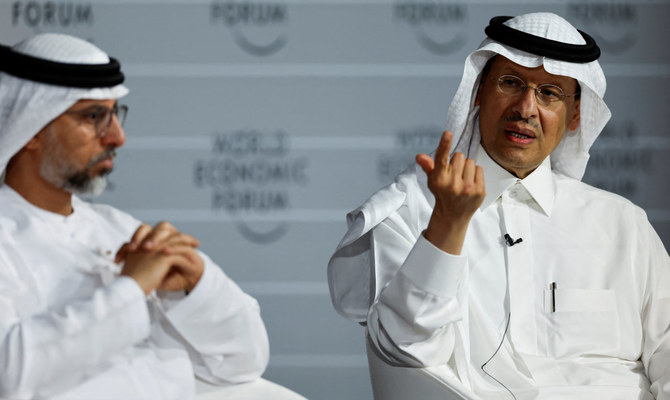
- “Solving sustainability problems requires technology and China has contributed greatly by increasing technical progress and making the cheapest energy available to the world”
DUBAI: A panel of ministers and experts gathered at the World Economic Forum in Riyadh on Sunday to discuss the road map for tripling renewables by 2030.
The UAE’s Minister of Energy and Infrastructure Suhail Mohamed Al-Mazrouei said his country’s goal would not only be reached but possibly exceeded by 2030.
“The UAE has been offering solar power to aid the world in reaching the goal of tripling renewables,” he said. “We have very few years until 2030, we need to work alongside and encourage countries to make the achievement by then.”
Li Zhenguo, president of Longi Green Energy Technology, said the Chinese government had been at the forefront of efforts to develop renewables.
“In 2023, China installed 216 solar power plants, which is more than 50 percent of the global capability,” he said.
“Solving sustainability problems requires technology and China has contributed greatly by increasing technical progress and making the cheapest energy available to the world.”
Marco Arcelli, CEO of Saudi-based ACWA Power, said he was surprised by the momentum in the region.
“Saudi and UAE have the most ambitious decarbs programs in the world. There is a speed and dimension you don’t see much elsewhere,” he said.
“There is leadership with a vision, there is cheap energy available and I believe you will start seeing greenshoring in the Kingdom by 2030. Lots of upcoming projects in the country, be it NEOM or others, will be solar driven and using renewable energy.”
Kuwait’s Minister of Electricity, Water and Renewable Energy Salem Alhajraf said there was a need to increase global production capacity.
“Innovative financing is key,” he said. “We need to move from small giga-sized projects to deploying renewables. Cities or towns with small populations can possibly have all their needs met by solar power.”
Stephanie Jamison, global Resources Industry Practices chair at Accenture, said her company had been developing guidelines for community engagement and nature transition.
“By conducting surveys and interviewing various CEOs, it has become clear that companies understand the impact they are making on nature. And so, partnerships between companies and proactive partnerships between companies and the community is one way to tackle challenges.”
Saudi energy minister, EU official discuss cooperation on clean energy
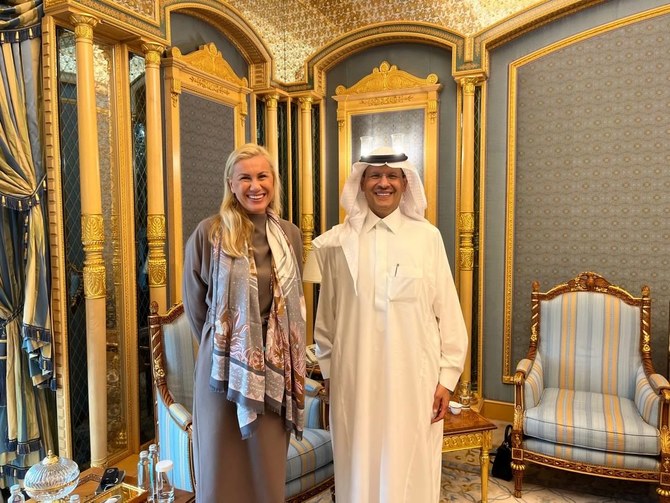
RIYADH: Saudi Energy Minister Prince Abdulaziz bin Salman on Sunday held talks with EU Energy Commissioner Kadri Simson to discuss prospects for cooperation in the field of clean energy.
The top officials met on the sidelines of the World Economic Forum in the Saudi capital, the Saudi Press Agency reported. They discussed ways to strengthen bilateral ties, boost cooperation for the promotion of green energy and advance the goals of the Paris Agreement and ensure the implementation of the outcomes of the COP28 held in Dubai last year.
The Paris Agreement is an international treaty on climate change that was adopted back in 2015. It was negotiated by 196 parties at COP21 in France and covers climate change mitigation, adaptation, and finance.
They reaffirmed the common goals of Saudi Arabia and the EU and the determination of both parties to accelerate private investment in the renewable energy sector, cooperate on electricity interconnection and the integration of renewables into the electricity grid.
The officials stressed the need to strength the electricity supply infrastructure through demand side management smart grid. They also discussed carbon capture, utilization and storage technology and opportunities for industrial partnerships in those sectors.
They also shared their view on building on the UNFCCC, the Paris Agreement and COP28 outcomes. The officials also discussed a Saudi-EU memorandum of understanding to boost cooperation in the energy sector.
According to SPA report, they were of the view that such an MoU should provide a solid and mutually beneficial basis for orienting and anchoring investment decisions in the energy and clean tech sectors, involve and mobilize stakeholders from the public, private and financial sectors, and lay the foundation for a more sustainable and secure energy future.
The European Commission and Saudi Arabia aim to conclude the MoU in the next few months.
Saudi Arabia to host 28th World Investment Conference in Riyadh
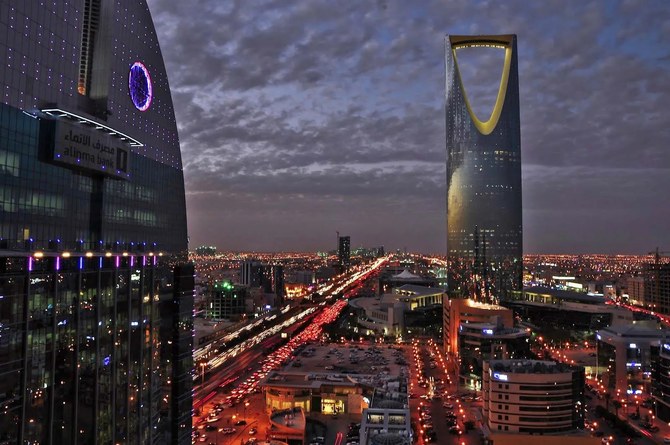
RIYADH: Saudi Arabia is on track to host the 28th World Association of Investment Promotion Agencies’ World Investment Conference from Nov. 25 to 27 in Riyadh.
The forum themed “Future-ready IPAs: Navigating digital disruption and sustainable growth,” will bring together leaders from investment promotion agencies, corporates, multilateral institutions, and other stakeholders to discuss global financial trends and opportunities, according to a statement.
The Kingdom’s selection as a host underscores its position as an international funding hub, according to Saudi Investment Minister Khalid Al-Falih.
“We are honored to be welcoming the global investment community to Saudi Arabia. Our strategic location at the crossroads of three continents, coupled with our world-class investment ecosystem and long-term political and economic stability, has seen the Kingdom develop into a global investment hub,” Al-Falih said.
“The World Investment Conference will serve as a platform to showcase our nation’s potential and forge partnerships that will shape the global investment landscape for years to come,” the minister added.
On WAIPA’s behalf, Executive Director and CEO Ismail Ersahin said: “WAIPA is honored that the 28th WAIPA World Investment Conference will be held in Riyadh, a city with a rich history and culture.”
Ersahin added: “With each edition, the WIC reaffirms its status as a guiding force for sustainable and inclusive development.”
He went on to stress how the conference is poised to be an impactful gathering aimed at the future readiness of IPAs.
Since 1995, the annual gathering has provided a forum for stakeholders to exchange insights and best practices and forge partnerships that drive economic development globally.
Human capital a ‘key challenge’ for Kingdom’s tourism sector, says Saudi minister
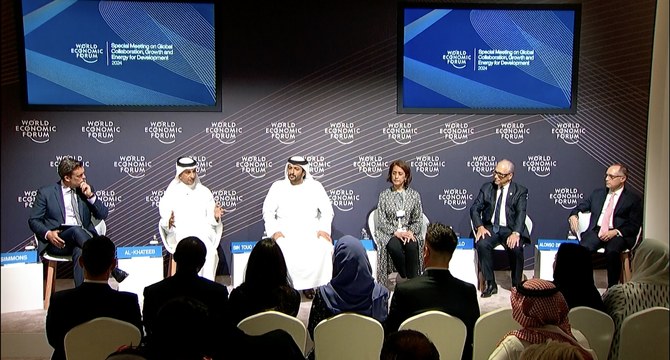
- Saudi Arabia's tourism sector is 'heading to achieve $80 billion this year' in private investment, Al-Khateeb told a WEF panel
LONDON: Developing human capital is a key challenge for Saudi Arabia’s travel sector, the country’s tourism minister has said on Sunday.
Ahmed Al-Khateeb, speaking during a two-day meeting of the World Economic Forum in Riyadh, discussed the Kingdom’s burgeoning tourism industry, which has boomed over the past half-decade.
To address the human capital challenge, the Saudi leadership has encouraged young people across the Kingdom “to join the sector,” he said.
“We are spending a lot to train (young Saudi talents) and scale them, and involve them in the sector,” he told the “Vacationomics” panel discussion, adding that hiring local experts is essential for delivering better tourism experiences.
“You get the best experience and you know more about other people’s culture and other nations’ cultures when you deal and interact with locals,” he said. “We want to make sure that our guests are served by local people.”
Saudi Arabia has delivered “strong growth in Q1 this year, and we are moving to deliver our 2030 numbers,” the minister said.
The Kingdom’s tourism sector “has come a long way” since the launch of the National Tourism Strategy as part of efforts to diversify the economy, Al-Khateeb said, adding that the industry is “heading to achieve $80 billion this year” in private investment.
Last year, Saudi Arabia attracted about $66 billion in private investment into tourism.
“We doubled the number of visitors coming from outside — 100 million in total … 77 million domestic (and) 27 million international,” he said. “This is double the number that we achieved before we launched our National Tourism Strategy.
“We have the funding. We have a great country. We have everything that the international tourists would like to see and experience.”
Jerry Inzerillo, chief of the Diriyah Gate Development Authority, told the panel: “What the Gulf and its leadership will do in the next 10 years is going to be breathtaking to allow people to come from all over the world.”
With “so much to do in the region,” Inzerillo said he believed the “warmth and hospitality” of the Saudi people is serving as a strong selling point for tourism in the Kingdom.
Though the traditional Gulf tourism market in Saudi Arabia is well developed, European tourism is “now activating” through new business with the Kingdom, he added.
“And as we sign more and more airline deals and… (the) Ministry of Tourism has done a brilliant job in getting bilaterals, you’ll see those numbers grow very exponentially.”
Other panelists included Abdulla Bin Touq Al-Marri, UAE minister of economy; Thiago Alonso de Oliveira, CEO of JHSF Participacoes; and Aireen Omar, president and CEO of RedBeat Capital.
Saudi Green Building Forum set to obtain UNCCD’s permanent observer status
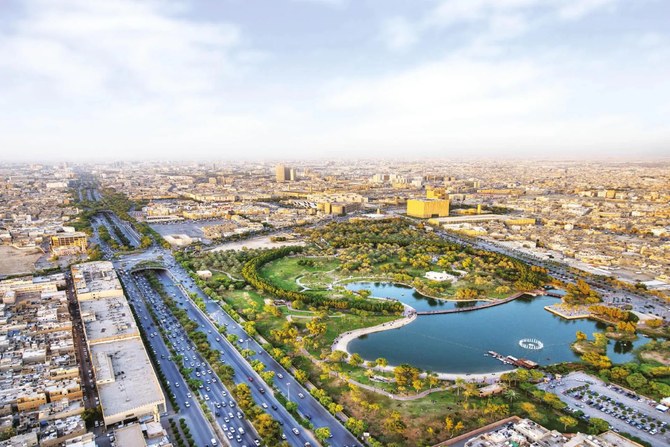
RIYADH: The Saudi Green Building Forum is set to obtain permanent observer status following the submission of a formal request to the UN Convention to Combat Desertification.
Pending a final decision during the 16th session of the Conference of the Parties to be held from Dec. 2-13 in Riyadh, this move underscores the forum’s efforts to enhance its role in sustainable development and combat desertification.
The forum, which has already been temporarily accredited, is involved in the proceedings based on the provisions of paragraph seven of article 22 of the convention and articles six and seven of the internal regulations of the COP, according to a press release.
This initiative is part of a broader strategy to integrate scientific and community-based approaches to environmental management.
Commenting on the development, Faisal Al-Fadl, secretary-general of the Saudi Green Building Forum, said: “We are pleased with the official notification from the UN Secretariat of the receipt of the required documents after a thorough review of the documents submitted for the accreditation of the forum as the first Saudi institution specialized in preparation for obtaining observer status for the Conference of the Parties to the UN Convention to Combat Desertification,” he stated.
“The efforts of local communities play a significant role in enhancing the sustainable development goals for people, plants, and prosperity through advocating for human experiences based on scientific rules and community health and well-being for healthy, fair, and resilient communities and cities, sufficient consumption and production, climate action in removing harmful carbon, and reducing the temperature to 1.5 degrees Celsius, addressing desertification, and managing natural resources and water,” he added.
The UN Secretariat confirmed the receipt of all necessary documents for the forum’s accreditation as an observer, encouraging further participation in the convention’s activities.
“After a thorough review of the documents submitted by your institution, we encourage you to continue participating in the implementation of the UN Convention to Combat Desertification and keep the secretariat informed of the activities,” the letter stated.
The Saudi Green Building Forum’s potential new status as a permanent observer at the UN Convention will enable it to contribute more effectively to global efforts against desertification, leveraging cooperation between developed and developing nations, particularly in sustainable land management and environmental restoration.


